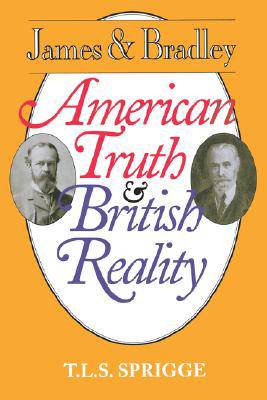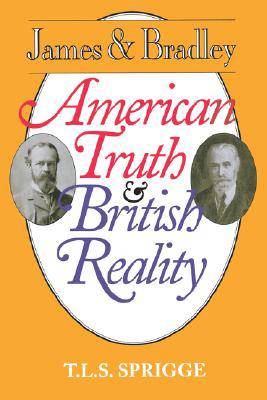
- Afhalen na 1 uur in een winkel met voorraad
- Gratis thuislevering in België vanaf € 30
- Ruim aanbod met 7 miljoen producten
- Afhalen na 1 uur in een winkel met voorraad
- Gratis thuislevering in België vanaf € 30
- Ruim aanbod met 7 miljoen producten
Omschrijving
Despite their enduring importance, the theoretical systems of James and Bradley are often badly misunderstood. Professor Sprigge freshly expounds and clarifies their arguments, demonstrating that it is wrong to think of James's pragmatism and Bradley's monistic idealism as opposite extremes. Their positions in fact display an intriguing mixture of affinities and contrasts.
Professor Sprigge begins with a critical account of the theory behind James's notorious claim that the true is nothing more than the expedient.
He defends James against many unsound criticisms, but concludes that pragmatism's account of truth is incomplete. James's evolving metaphysical enquiries, from The Principles of Psychology through his later radical empiricist phase, his opposition to absolute idealism, and his religious motivation are all carefully elucidated. After outlining Bradley's metaphysical system, Sprigge scrutinizes Bradley's use of 'The Absolute', critically evaluates Russell's criticisms of Bradley, compares Bradley's phenomenology with Husserl's, and considers Bradley's view of the displacement of Christian morality by Darwinism.
Specificaties
Betrokkenen
- Auteur(s):
- Uitgeverij:
Inhoud
- Aantal bladzijden:
- 648
- Taal:
- Engels
Eigenschappen
- Productcode (EAN):
- 9780812692273
- Verschijningsdatum:
- 1/11/1993
- Uitvoering:
- Paperback
- Formaat:
- Trade paperback (VS)
- Afmetingen:
- 155 mm x 228 mm
- Gewicht:
- 1025 g

Alleen bij Standaard Boekhandel
Beoordelingen
We publiceren alleen reviews die voldoen aan de voorwaarden voor reviews. Bekijk onze voorwaarden voor reviews.











